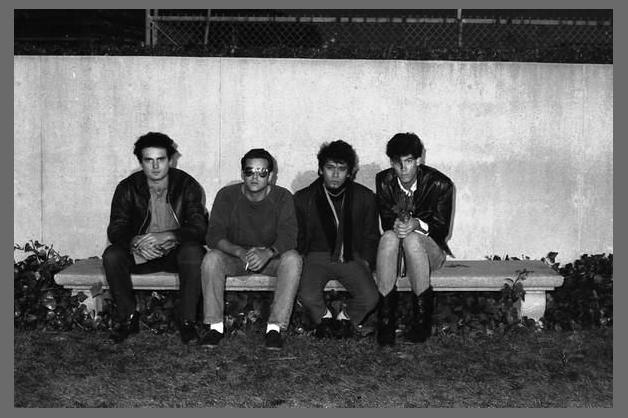 Saccharine Trust
Saccharine Trust
Saccharine Trust: A Sonic Abyss of Discord and Discordance
Emerging from the primordial punk scene of the late 1970s, Saccharine Trust emerged as a sonic anomaly that defied easy categorization. Led by the enigmatic Joe Baiza, the band's music was a chaotic blend of corrosive punk, dissonant noise, and ethereal introspection.
Early Years and Controversies
Formed in 1979 in San Pedro, California, Saccharine Trust quickly gained notoriety for their confrontational live performances and challenging lyrical content. Baiza's raw and abrasive vocals, coupled with the band's relentless cacophony, drew both praise and scorn.
Critics accused them of being nihilistic and misanthropic, while fans hailed their music as a cathartic exploration of the darkness within. The band's contentious reputation was further cemented by a controversial 1981 performance at the famed Whiskey a Go Go, where Baiza was arrested for allegedly inciting a riot.
Discography: A Testament to Sonic Anarchy
Despite their tumultuous journey, Saccharine Trust released a series of seminal recordings that left an indelible mark on underground music. Their debut album, "Paganicons," released in 1981, captured the band's raw and primitive energy.
Subsequent releases, such as "We Became Snakes" (1982) and "Surviving You, Always" (1984), showcased a more nuanced and experimental approach, incorporating elements of industrial and ambient music.
Members and Influences
Throughout their active years, Saccharine Trust's lineup underwent several iterations, with Baiza remaining the sole constant. Notable members included Rob Holzman on bass, Marc Moreland on guitar, and Tony Castaneda on drums.
The band drew inspiration from a diverse range of sources, including punk pioneers like the Sex Pistols and the Stooges, as well as avant-garde composers like John Cage and Karlheinz Stockhausen.
Legacy and Impact
Saccharine Trust disbanded in 1985, leaving behind a lasting legacy as one of the most influential and uncompromising bands of their era. Their music continues to resonate with audiences today, inspiring countless musicians and subcultures.
The band's ability to fuse raw aggression with introspective vulnerability has made them a touchstone for fans of experimental and underground music. Their legacy is a testament to the transformative power of sonic discord and the enduring appeal of confronting the darkest aspects of the human condition.
Emerging from the primordial punk scene of the late 1970s, Saccharine Trust emerged as a sonic anomaly that defied easy categorization. Led by the enigmatic Joe Baiza, the band's music was a chaotic blend of corrosive punk, dissonant noise, and ethereal introspection.
Early Years and Controversies
Formed in 1979 in San Pedro, California, Saccharine Trust quickly gained notoriety for their confrontational live performances and challenging lyrical content. Baiza's raw and abrasive vocals, coupled with the band's relentless cacophony, drew both praise and scorn.
Critics accused them of being nihilistic and misanthropic, while fans hailed their music as a cathartic exploration of the darkness within. The band's contentious reputation was further cemented by a controversial 1981 performance at the famed Whiskey a Go Go, where Baiza was arrested for allegedly inciting a riot.
Discography: A Testament to Sonic Anarchy
Despite their tumultuous journey, Saccharine Trust released a series of seminal recordings that left an indelible mark on underground music. Their debut album, "Paganicons," released in 1981, captured the band's raw and primitive energy.
Subsequent releases, such as "We Became Snakes" (1982) and "Surviving You, Always" (1984), showcased a more nuanced and experimental approach, incorporating elements of industrial and ambient music.
Members and Influences
Throughout their active years, Saccharine Trust's lineup underwent several iterations, with Baiza remaining the sole constant. Notable members included Rob Holzman on bass, Marc Moreland on guitar, and Tony Castaneda on drums.
The band drew inspiration from a diverse range of sources, including punk pioneers like the Sex Pistols and the Stooges, as well as avant-garde composers like John Cage and Karlheinz Stockhausen.
Legacy and Impact
Saccharine Trust disbanded in 1985, leaving behind a lasting legacy as one of the most influential and uncompromising bands of their era. Their music continues to resonate with audiences today, inspiring countless musicians and subcultures.
The band's ability to fuse raw aggression with introspective vulnerability has made them a touchstone for fans of experimental and underground music. Their legacy is a testament to the transformative power of sonic discord and the enduring appeal of confronting the darkest aspects of the human condition.